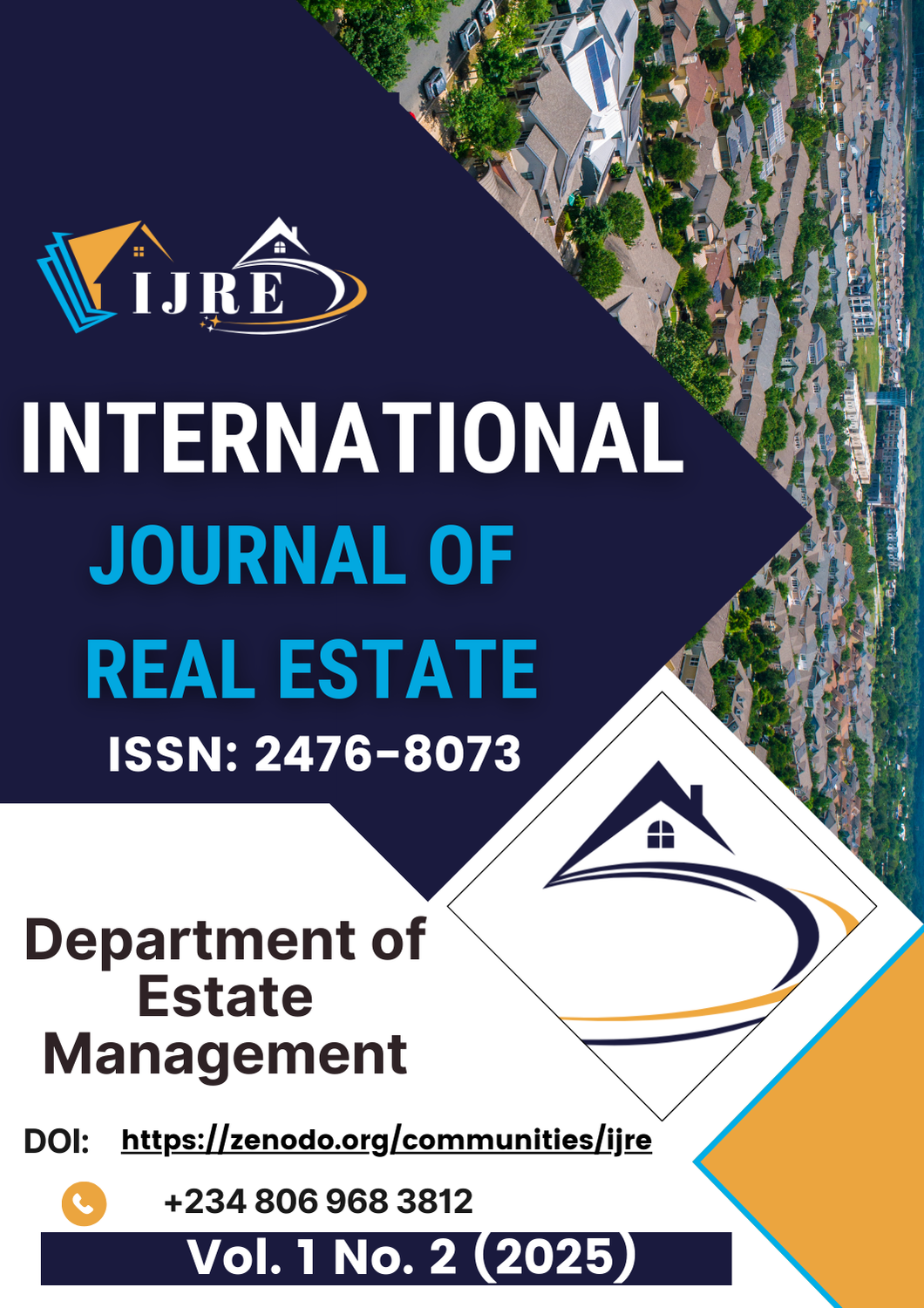Green Building Certifications and Sustainable Development in Osogbo, Nigeria: The Issues and Challenges
DOI:
https://doi.org/10.5281/zenodo.15575705Keywords:
Green Building Certification, Sustainable Development, Osogbo Metropolis, Environmental Policy, Urban SustainabilityAbstract
The quest for sustainable development in Nigeria faces substantial challenges, particularly in urban centers like Osogbo Metropolis. Green building practices has emerged as a vital tool for addressing these challenges by promoting resource efficiency, environmental responsibility, and long-term economic benefits. This study examined the impact of green building certification on sustainable development in Osogbo, an emerging city in Nigeria, analyzing its perspective effectiveness in term of its level of awareness, policy gap and cost factor, energy efficiency potentials and improved residents' quality of life. Drawing on relevant literatures on sustainable construction and green building adoption in Nigeria, the study explores key issues as lack of policy gap, financial constraints and limited public awareness among others, through the adoption of a mixed method approach to achieve the research objectives. Findings indicate that, while green certification frameworks like Leadership in Energy and Environmental Design (LEED) and Nigeria’s Green Building Council initiatives have the potentials to drive sustainable urban development, their implementation in Osogbo remains hindered by regulatory inconsistencies and high costs. The study therefore, recommends enhanced government incentives, increased stakeholder engagement, and public education to facilitate the adoption of green building practices. By addressing these challenges, Osogbo and other similar cities can leverage green certification to achieve more sustainable urban growth, aligning with global sustainability goals.
Downloads
Published
Issue
Section
License

This work is licensed under a Creative Commons Attribution-ShareAlike 4.0 International License.





